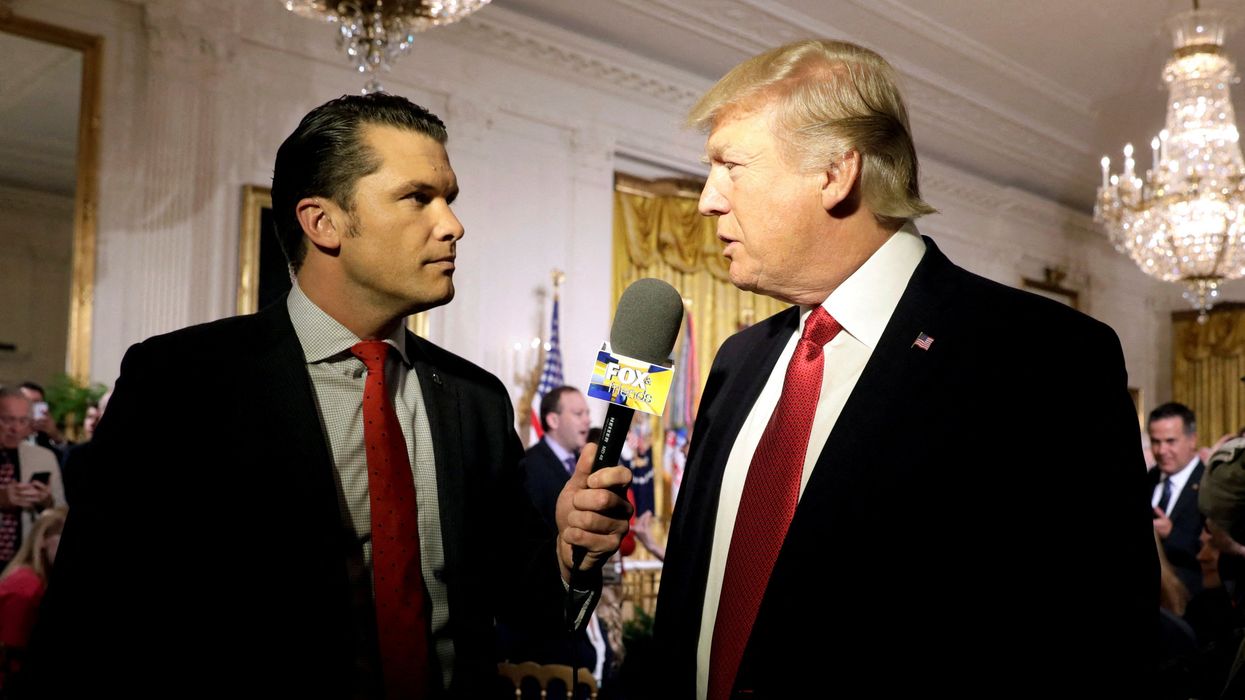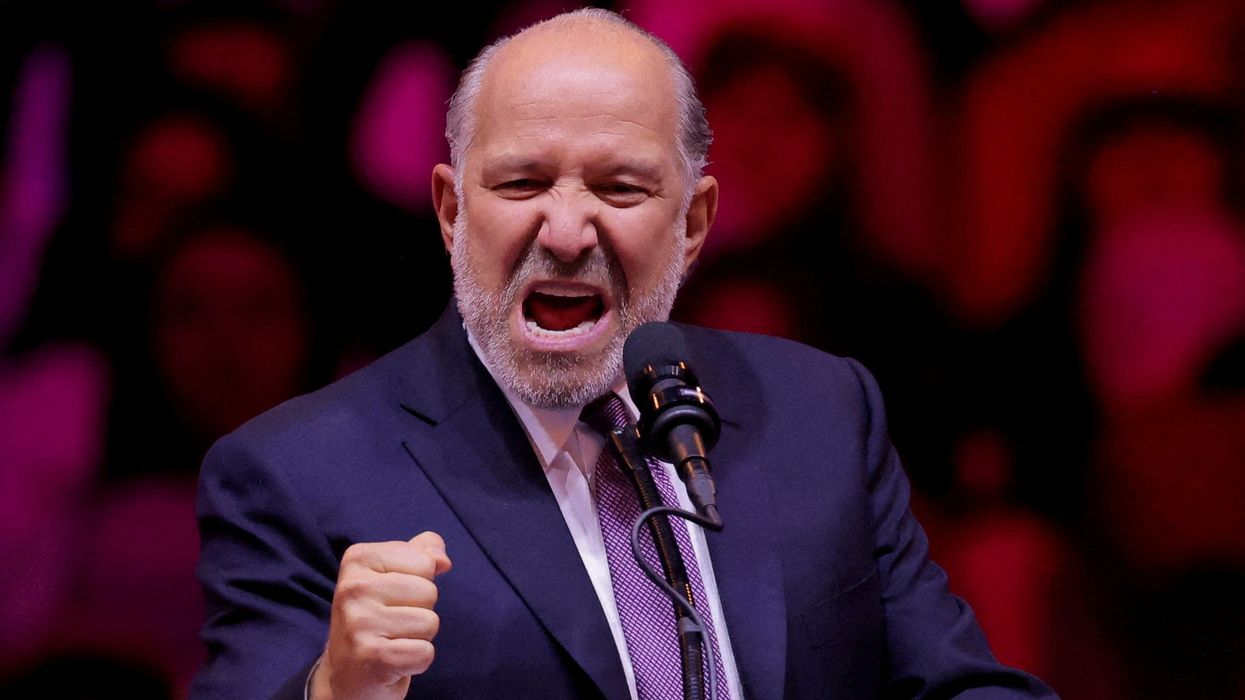Trump: Isolationist in Instinct, Unpredictable in Action
Selective engagement will replace liberal internationalism.
By Walden Bello

There are a number of certainties about the coming Trump administration. One is that it will be bad for the climate. Another is that it will be bad for American democracy. A third is that it will be largely bad for minorities and for women.
But when it comes to many other matters, like foreign policy, the key word is unpredictability, for Trump, as the world learned during his first term in office, is unpredictability personified. Observing this caveat when it comes to what to expect in terms of concrete actions and policies, one can nevertheless discern what are likely to be the fundamental thrusts of Trump 2.0. This is as much the case in the area of foreign policy as in domestic policy.
Liberal Internationalism as “Grand Strategy”
To use a common phrase these days, the coming Trump presidency will not only be an “inflection point” for U.S. domestic politics but for U.S. foreign policy as well. This should not be surprising since it is domestic priorities and domestic public opinion that, in the last instance, determine a country’s stance towards the outside world—what is called its “grand strategy.” The last time the United States experienced the kind of transformative event in foreign affairs that is coming on January 20, 2025, is 83 years ago when President Franklin D. Roosevelt brought the United States into World War II. FDR had a hell of a time overcoming isolationist sentiment and may well have failed had the Japanese not bombed Pearl Harbor and changed public sentiment overnight from isolationism toward global engagement.
The grand strategy that Roosevelt inaugurated can best be called “liberal internationalism.” Following the end of World War II and the beginning of the competition with the Soviet Union, that strategy was consolidated as “containment liberalism” by President Harry Truman, and it has been the guiding approach of every administration ever since, with the exception of the Trump administration from 2017 to 2021. The fundamental premise of liberal internationalism was best expressed by President John F Kennedy in his inaugural speech in 1961, when he said that Americans “shall pay any price, bear any burden, meet any hardship, support any friend, oppose any foe to assure the survival and the success of liberty.” Another much quoted characterization of this outlook was provided by another Democratic Party personality, Madeleine Albright, Bill Clinton’s secretary of state, when she said that for the maintenance of global order, the United States was “the indispensable country.”
Liberal internationalism had its hard and not-so-hard versions, the former often termed containment liberalism or neoconservatism. But whatever their differences when it came to rhetoric or implementation, the differences between liberal internationalism and neoconservatism were matters of nuance, not substance. The rhetoric was lofty but the subtext of the rhetoric of liberal internationalism was making the world safe for the expansion of America capital by extending the political and military reach of the U.S. state.
The Unraveling of Liberal Internationalism
The grand strategy of liberal internationalism, however, became mired in its own ambitions, its first major setback occurring in Southeast Asia, with the U.S. defeat in Vietnam. Toward the end of the twentieth century, globalization, the economic component of liberal internationalism, led to the unmooring of U.S. capital from its geographical location in the United States as American transnationals went out in search of cheap labor, resulting in the massive loss of manufacturing jobs in the United States and the building up of a rival economic power, China. Power projection, the military prong of the project, led to overextension or overreach, with the ambitious effort of President George W. Bush to remake the world in America’s image by carrying out the invasion of Afghanistan and Iraq during Washington’s so-called “unipolar moment” in the early 2000s. The result was a debacle from which the United States has never recovered. Both the crisis of globalization and the crisis of overextension paved the way for the rebirth of the isolationist impulse that broke to the surface under Trump’s presidency in 2017-2021.
Only in retrospect can one appreciate how radically the isolationist, anti-globalist, and protectionist foreign policy of the first Trump administration broke with liberal internationalism. Trump, among other things, tore up the neoliberal Trans-Pacific Partnership that both Democrats and Republicans championed, considered NATO commitments a burden, demanded that Japan and Korea pay more for keeping U.S. troops and bases in their countries, trampled on the rules of the World Trade Organization, ignored the IMF and World Bank, negotiated the U.S. withdrawal from Afghanistan with the Taliban, and broke the West’s united front against North Korea by stepping across the DMZ to pat Kim Jong Un on the back on June 30, 2019. Some have said that his foreign policy was erratic or chaotic, but there was an underlying logic to his supposed madness, and this was his felt need to play opportunistically to an important part of his white, working-class and middle-class base that felt they had had enough of bearing the burdens of empire for the sake of the American political and economic elites.
But like Roosevelt in his efforts to break with isolationism in the early 1940s, Trump’s drive to break with liberal internationalism was plagued with obstacles, foremost of which were some of his appointees, who were open or covert adherents of liberal internationalism and proponents of globalization, and the entrenched national security bureaucracy known as the “deep state.” With Trump’s defeat in the November 2020 elections, these elements of the old foreign policy regime bounced back with a vengeance during the Biden administration, which proceeded to give full backing to Ukraine in its fight with Russia, expand the remit of NATO to the Pacific, and plunge the United States into full-scale military containment of China.
For Trump, there is a second chance to remake U.S. foreign policy beginning on January 20, 2025, and it’s unlikely he’ll allow partisans of the old regime spoil his efforts a second time. In this regard, one must not be fooled by the pro-expansionist or interventionist rhetoric or record of some of his cabinet picks, like Marco Rubio. These folks have no fixed political compass but political self-interest, and they will adjust to Trump’s instincts, outlook, and agenda.
Orban on Trump’s Grand Strategy
Probably the world leader that Trump admires most is Hungarian strongman Viktor Orban. Indeed, Trump and Orban form a mutual admiration society. Prior to the elections, Orban was channeling Trump to the world. On the question of America’s relations with the world under a second Trump presidency, Orban had this to say:
[M]any people think that if Donald Trump returns to the White House, the Americans will want to retain their world supremacy by maintaining their position in the world. I think that this is wrong. Of course, no one gives up positions of their own accord, but that will not be the most important goal. On the contrary, the priority will be to rebuild and strengthen North America. ..And America’s place in the world will be less important. You have to take what the President says seriously: “America First, everything here, everything will come home!”… For example, they are not an insurance company, and if Taiwan wants security, it should pay. They will make us Europeans, NATO and China pay the price of security; and they will also achieve a trade balance with China through negotiations, and change it in favour of the US. They will trigger massive US infrastructure development, military research, and innovation. They will achieve – or perhaps have already achieved – energy self-sufficiency and raw material self-sufficiency; and finally they will improve ideologically, giving up on the export of democracy. America First. The export of democracy is at an end. This is the essence of the experiment America is conducting in response to the situation described here.
Let’s parse and expand on Orban’s comments. For Trump, there is one overriding agenda, and that is to rejuvenate, repair, and reconstitute what he regards as an economy and society that has been in sharp decline owing to policies of the last few decades, policies that were broadly shared by Democrats and traditional Republicans.
For him, neoliberal policies, by encouraging American capital to go abroad, particularly to China, and free-trade policies, have greatly harmed the U.S. industrial infrastructure, resulting in loss of good paying blue-collar jobs, stagnation in wages, and rising inequality. “Making American Great Again” or MAGA is mainly an inward-looking perspective that prioritizes economic rejuvenation by bringing American capital back, walling off the American economic from cheap imports, particularly from China, and reducing immigration to a trickle—with that trickle coming mainly from what he would term “non-shithole countries” like Norway. Racism, dog-whistle politics, and anti-migrant sentiment are, not surprisingly, woven into Trump’s domestic and foreign policy rhetoric since his base is principally—though not exclusively—the white working class.
Foreign policy is, from this perspective, a distraction that must be seen as a necessary evil. The MAGA mindset, which is basically isolationism cum nationalism, sees U.S. security arrangements abroad, whether in the guise of the North Atlantic Treaty Organization (NATO) or mutual defense treaties such as those with Japan, South Korea, and the Philippines, as obsolete commitments that may have been appropriate at a time that the United States was an expansionist power with tremendous resources but have since become bothersome relics for a power in decline, gaping holes that leak both money, manpower, and energy that would be better deployed elsewhere.
Trump is not interested in expanding a liberal empire via free trade and the free flow of capital—an order defended by the political canopy of multilateralism and promoted via an economic ideology of globalization and a political ideology of liberal democracy. What he is interested in is building a Fortress America that is much, much less engaged with the world, where the multilateral institutions through which the United States has exercised its economic power, NATO and the Bretton Woods institutions, would be much less relevant as instruments of U.S. power. Deal-making, like the one Trump conducted with Kim Jong-Un during his first term, would, instead, be one of the main methods of defending American interests. Unilateral military and economic actions against those outside the fortress that are seen as threats, rather than allied endeavors, will be the order of the day.
Selective Engagement and Spheres of Influence
Rather than isolationism, probably a better term for Trump’s grand strategy is “selective engagement,” to contrast it with the open-ended global engagement of liberal internationalism.
One aspect of selective engagement will be disengagement from what Trump denigrates as “shithole countries,” meaning, most of us in the global South, in terms of trying to shape their political and economic regimes via the IMF and the World Bank and providing bilateral economic and military aid. Definitely, there will be no more talk of “exporting freedom and democracy” that was a staple of both Democratic and Republican administrations.
Another aspect of selective engagement will be a “spheres of influence” approach. North America and South America will be regarded as being Washington’s natural sphere of influence. So, Trump will stick to the Monroe Doctrine, and maybe his choice of Marco Rubio to be secretary of state might reflect this, since Rubio, a child of Cuban refugees, has been very hostile to left-leaning governments in Latin America.
Eastern Europe will likely be seen as belonging to Moscow’s sphere of influence, with Trump reversing the post-Cold War U.S. policy of extending NATO eastward, which was a key factor that triggered Putin’s invasion of Ukraine.
The European Union will be left to fend for itself, with Trump unlikely to invest any effort to prop up NATO, much less expand its remit to the Asia Pacific, as Biden has done. It would be a mistake to underestimate Trump’s resentment of the western allies of the United States, which, in his view, have prospered at the expense of America.
The downgrading of the United States as a central player in the Middle East will continue, with Washington’s confining itself to providing weapons for Israel and encouraging a diplomatic rapprochement between Israel and the reactionary Arab states like Saudi Arabia to stabilize the area against Iran and the wave of radical Islamism that direct U.S. intervention failed to contain. Needless to say, Trump will gladly turn a blind eye to Tel Aviv’s carrying out its genocidal campaign against the Palestinians.
Finally, in the Asia Pacific, there is a strong likelihood that while Trump will pursue the trade and technology war with China that he initiated during his first term, he will dial down the military confrontation with Beijing, mindful that his base is not going to like military adventures that take away the focus from building Fortress America. Concretely, he’ll raise the price for keeping U.S. troops and bases in Japan and South Korea. He’ll reengage Kim Jong Un in the dialogue he was carrying out when he crossed the DMZ in 2019—a dialogue that could have unpredictable consequences for the U.S. military presence in South Korea and Japan. He already gave an indication of this during his acceptance speech during the Republican National Convention when he said he had to initiate a dialogue with Kim owing to the fact that he “is someone with a lot of nuclear weapons.” Could the withdrawal or radical reduction of Washington’s military umbrella for South Korea and Japan be the price of a grand deal between Kim and Trump? This is the specter that haunts both states.
Trump is likely to cease sending ships through the Taiwan Straits to provoke China, as Biden did, and one can expect him to tell Taiwan that there’s a dollar price to be paid for being defended by the United States and that Taipei should not expect the same assurance that Biden gave it that Washington will come to Taiwan’s rescue in the event of a Chinese invasion. I think Trump knows that a Chinese invasion of Taiwan was never in the cards anyway and that Beijing’s strategy was always cross-straits economic integration as the means to eventually absorb Taiwan.
As for the Philippines and the South China Sea, a Trump administration is likely to tell Manila that there will be none of that “iron clad” guarantee promised by Biden of an automatic U.S. military response under the 1951 Mutual Defense Treaty in support of Manila in the event of a major confrontation with China in the South China Sea, like the sinking of the Philippine vessel. Trump, it must be remembered, has gone on record saying that he would not waste one American life for what he called “rocks” in the South China Sea. The Pentagon’s push to build up the Philippines as a forward base for the military confrontation with China that Biden fully supported is likely to be reviewed, if not put on hold or abandoned.
In short, Trump is likely to communicate to Xi Jinping that the Asia Pacific is China’s sphere of influence, though this message will be delivered informally and covered up by rhetoric of continued American engagement with the region.
In conclusion, one must restate the caveat made at the beginning of this piece: that there are few certainties when it comes to an unpredictable figure like Trump. These few certainties are that Trump will be bad for the climate, for American democracy, for women, and for minorities. As for the rest, one can speculate based on past behavior, statements, and events, but one would be wise to always remind oneself that while his instincts are isolationist, unpredictability in policy and action has been and will continue to be the hallmark of Donald Trump.
Walden Bello is currently the International Adjunct Professor of sociology at the State University of New York at Binghamton and Co-Chairperson of the Bangkok-based research and advocacy institute Focus on the Global South. He is the author or co-author of 25 books, including Counterrevolution: The Global Rise of the Far Right (Nova Scotia: Fernwood, 2019), Paper Dragons: China and the Next Crash (London: Bloomsbury/Zed, 2019), Food Wars (London: Verso, 2009) and Capitalism’s Last Stand? (London: Zed, 2013).








.jpg)